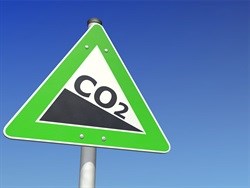South Africa is committed to addressing climate change and reducing emissions. We signed up for it, along with most of the rest of the world in Copenhagen in 2009.
We are a nation which aspires to be sustainable, economically prosperous and self-reliant while safeguarding our democracy by meeting the fundamental human needs of our people. This requires us to manage limited ecological resources responsibly for current and future generations. It requires that sustainable development be embraced as a national priority - we can no longer meet our socio-economic goals if ecosystems and natural resources are depleted.
As a nation, we're committed to the dual objective of a being a competitive player in global markets while transforming the economy away from the dependence on primary resource production and commodity-based industries. In order to achieve this, building innovation, and specifically growing clean technology solutions is critical.
The promotion of clean technology is implicitly addressed in several national policies, strategies and action plans that promote research and development that meet sustainable development objectives. It is also explicitly addressed through the Renewable Energy Independent Power Producer Procurement Programme (REIPPP). Other government interventions specifically aimed at supporting small and medium enterprises include the Global Cleantech Innovation Programme (GCIP), a global programme that is supported by the Technology Innovation Agency.
Meeting targets
However, South Africa still fares poorly compared to other developing countries when it comes to the kind of innovation necessary for us to meet our emissions reductions targets. In the latest Global Cleantech Innovation Index released last year, which looks at the ability of countries to create the right environment for entrepreneurial start-ups developing clean technology, SA ranked 29 out of 40 countries.
The index demonstrates that countries get ahead if they are able to adapt to the growing demand for renewable energy (at home and abroad); are connecting start-ups with multiple channels (e.g. multinational corporates, public procurement) to increase their success rates; and are increasing international engagement to spur widespread adoption of clean technologies.
Overall, the index shows countries that put significant resources into supporting cleantech innovation are rewarded with more emerging and commercialised cleantech companies, validating the approach many governments have taken to actively promote cleantech innovation nationally.
Clearly, we are not, on the whole, achieving this. South Africa scores below average on all factors in the index. The country lacks general innovation and early-stage entrepreneurial activity, resulting in a weak general innovation driver score. South Africa does slightly better in cleantech-specific drivers due to supportive government policies like REIPPP, but lacks public research and development budget and access to private finance.
Difficult for entrepreneurs
South Africa scores very low on all indicators of emerging cleantech innovation. Finally, South Africa achieves an average score in commercialised cleantech, thanks to good cleantech revenues but falls behind in terms of late-stage investments in publicly traded cleantech companies.
The hard fact is that South Africa is a notoriously difficult place for entrepreneurs and SMMEs to make it. To turn this around, and turn it around we must - even more crucially now that the latest Eskom crisis is upon us - a more supportive environment for cleantech start-ups is not only essential, but opportune.
To this end, WWF-SA last year launched the South African chapter of the Climate Solvers Award. Climate Solvers was developed to raise awareness of technologies that reduce carbon emissions and support energy access and to communicate the value of innovation as an immediate and practical solution to climate change.
Our goal is to give such companies the best chance of success by increasing their national and international profile and engagement in order to spur widespread adoption of their clean technologies. Since its inception, Climate Solvers has promoted and supported cleantech innovations in numerous countries facing their own cleantech development challenges like China and India.
Improved opportunities
Winners of the awards enjoy increased visibility and credibility, opportunities for networking and attracting support from potential partners, improved business opportunities and enhanced exposure through the support of the WWF.
Entries should comprise innovative low-carbon technologies that reduce carbon emissions, or sustainable clean energy solutions that enhance energy access. Companies entering must own the technology, have developed the product to post-pilot stage and have clear business plans for developing and promoting the product. The technology must be currently available to the market and able to deliver carbon emissions reduction about 20 million tons per year by 2022 in support of our Copenhagen commitment or significantly contribute to improving energy access.
Last year's South African winners included SolarTurtle, an off-the-grid solution for rural communities which promotes access to energy; Rhino Modified Wood, a company producing high-density wood made from South African pine to replace imported hardwoods reducing emissions while positively impacting on hardwood forests; and Agriprotein Technologies which produces animal feed from fly larvae to replace fishmeal, benefiting marine populations while reducing emissions.
South Africa is not short on innovation. But that innovation - especially when it comes to cleantech - necessitates all the support it can get.



















































